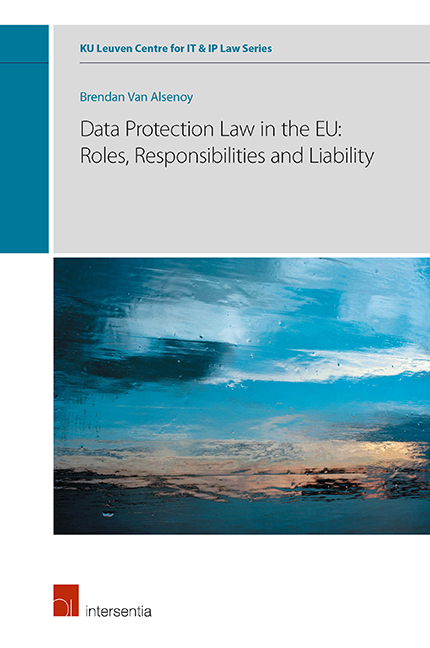Book contents
- Frontmatter
- Foreword
- Note to the Readers
- Acknowledgments
- Abstract
- Contents
- PART I INTRODUCTION
- PART II STATE OF THE ART
- PART III HISTORICAL-COMPARATIVE ANALYSIS
- PART IV USE CASES
- Chapter 1 Introduction
- Chapter 2 E-Government Identity Management
- Chapter 3 Online Social Networks
- Chapter 4 Cloud Computing
- Chapter 5 Internet Search Engines
- PART V RECOMMENDATIONS
- Bibliography
- Miscellaneous Endmatter
Chapter 5 - Internet Search Engines
from PART IV - USE CASES
Published online by Cambridge University Press: 26 June 2019
- Frontmatter
- Foreword
- Note to the Readers
- Acknowledgments
- Abstract
- Contents
- PART I INTRODUCTION
- PART II STATE OF THE ART
- PART III HISTORICAL-COMPARATIVE ANALYSIS
- PART IV USE CASES
- Chapter 1 Introduction
- Chapter 2 E-Government Identity Management
- Chapter 3 Online Social Networks
- Chapter 4 Cloud Computing
- Chapter 5 Internet Search Engines
- PART V RECOMMENDATIONS
- Bibliography
- Miscellaneous Endmatter
Summary
INTRODUCTION
1077. INFORMATION LOCATION TOOLS – Internet search engines facilitate the location and retrieval of information. Specifically, they help their users to find relevant content amidst the abundance of content that is available online. Without these services, locating relevant information on the web would often be a challenge. With the help of search engines, however, information on just about any topic can be retrieved with considerable ease.
1078. BENEFITS – The societal benefits of internet search engines are tremendous. On a daily basis, people all over the world use search engine services for various activities, such as shopping, research and entertainment. People also use search engines to get in touch with new ideas or to stay abreast of global developments. It is fair to say that search engines play a pivotal role in today's information society. They also promote fundamental values such as freedom of expression and access to information. As observed by the Committee of Ministers of the Council of Europe:
“Search engines enable a worldwide public to seek, receive and impart information and ideas and other content in particular to acquire knowledge, engage in debate and participate in democratic processes.”
1079. PRIVACY IMPACT – At the same time, internet search engines have also raised numerous privacy concerns. A distinction can be made between two sets of concerns: those relating to (1) the users of search engine services and those relating to (2) search targets. The first set focuses on the privacy interests of people who use internet search engines. Individuals reveal a lot of information about themselves when searching for information online: about their personal interests, their travel plans, their political beliefs, their sexual preferences, their medical conditions, etc. In fact, the data contained in a search-query log can be far more revealing than the contents of a private email or telephone conversation. The second set of concerns focuses on the privacy interests of “search targets”. Internet search engines have made it relatively easy to find out information about just about anyone. By using a search engine, one can easily aggregate personal data which would otherwise remain dispersed across company websites, newspaper articles, social networking pages, blogs, etc. Internet search engines have, in other words, significantly reduced the transaction costs of compiling a comprehensive profile about a specific person. As a result, people have become increasingly concerned with the information to which search engines refer.
- Type
- Chapter
- Information
- Publisher: IntersentiaPrint publication year: 2019



